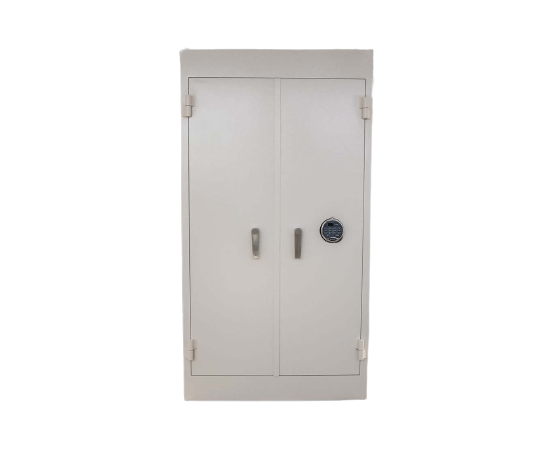New ATF Firearm Storage Rule
The DOJ (Department of Justice) just put into place a modification to an existing rule regarding Firearm Storage for FFLS Holders. An
FFL or Federal Firearms License is a license that enables an individual or a company to engage in a business pertaining to the manufacture, sale or importation of firearms and ammunition, or the interstate and intrastate sale of firearms.
These licenses are issued and regulated by the ATF or BAFTE, which is the Bureau of Alcohol, Tobacco, Firearms, and Explosives. Holding an FFL to engage in such activities has been a legal requirement within the United States since the enactment of the Gun Control Act of 1968.
This new rule implements the existing Gun Control Act requirement that federal firearms licensees that sell firearms to the general public (non-licensees) must certify that they have available secure gun storage or safety devices specifically designed to house the guns they sell and that these storage devices are available to the customers for purchase.
A secure gun storage or safety device, as defined by statute and regulation, includes a safe, gun safe, gun case, lock box or other device that is designed to be or can be used to store a firearm and that is designed to be unlocked only by means of a key, a combination or other similar means. Since not all devices are compatible with varying types of firearms, what is integral to the new rule is the requirement that FFLs have available secure gun storage options that are compatible with the specific firearms they are selling.
This means, if the FFL holder is selling rifles, having a variety of gun cases in stock will not be enough, they will have to be able to offer customers a safe that is large enough to house the rifles they might purchase.
The Department of Justice has submitted to the Federal Register for publication the final rule, which will take effect Feb. 3, 2022.
Quoting the ATF “This announcements build on the department’s efforts to reduce the risk of firearms falling into the wrong hands”. They claim that this new rule has the goal of increasing gun security and that increasing national safe gun storage laws will reduce deaths caused by suicide, school shootings, stolen firearms and unintentional deaths caused by the misplacement of such firearms. This aims to appease the crowd in favor of instilling laws like Ethan's Law which aims to amend chapter 44 of title 18, United States Code, to require the safe storage of firearms. This law carries the name of Ethan Song, who tragically died at 15 years of age by accidentally firing a firearm that was left unattended.
Many gun owners and 2nd amendment defenders view this new regulation as excessive and place themselves on the shoes of FFL holders, knowing that having a fully stocked warehouse of Gun Safe options is not something many business can afford to do. The general opinion is that rather than making sure that FFL Holders also become Gun Safe Sellers, the misuse of firearms can be mitigated by making guns less of a taboo and by offering more training and education of proper use of firearms from a young age.
Others claim that it's not misuse that is a problem and that most people that own firearms are responsible with them. They sustain that training will not mitigate miss use and that the problem is that there are people that obtain illegal firearms.
One thing that is worth mentioning is that this rule is not literally new. This is the DOJ publicizing a rule that was already in place and making it look as a completely new rule. The modification is that now FFLs have to certify having a mandatory inventory of gun safes and that these gun safes must now be specifically catered to gun types, but there has always been a rule that requires FFLs have gun locking devices available to customers, the rule stated that if they did not have any that they order one should a customer request one.
The modification to this rule will codify into regulation certain provisions of the Omnibus Consolidated and Emergency Supplemental Appropriations Act, 1999 and amends ATF's regulations to account for the existing statutory requirement that applicants for Federal Firearms dealer licenses certify having secure gun storage or safety devices available at any place where firearms are sold under the license to non-licensed individuals.
The modification also changes a couple of definitions and terms included in the original rule. It removes the words “the explosive in a fixed metallic cartridge” in the definition of “Rifle” and the words “the explosive in a fixed shotgun shell” in the definition of “Shotgun” and in exchange adds “an explosive” in both those places.
In addition to that, they have redefined what is categorized as an Antique firearm. Which is now defined as (1) Any firearm (including any firearm with a matchlock, flintlock, percussion cap, or similar type of ignition system) manufactured in or before 1898; (2) Any replica of any firearm described in paragraph (a) of this definition if such replica:(i) Is not designed or redesigned for using rim fire or conventional center fire fixed ammunition; or (ii) Uses rim fire or conventional center fire fixed ammunition that is no longer manufactured in the United States and that is not readily available in the ordinary channels of commercial trade; or(3) Any muzzle loading rifle, muzzle loading shotgun, or muzzle loading pistol that is designed to use black powder, or a black powder substitute, and that cannot use fixed ammunition.
For purposes of this paragraph (3), the term “antique firearm” does not include any weapon that incorporates a firearm frame or receiver, any firearm that is converted into a muzzle loading weapon, or any muzzle loading weapon that can be readily converted to fire fixed ammunition by replacing the barrel, bolt, breechblock, or any combination thereof.
According to the new regulations, and the statement issued by Merrick B. Garland the Attorney General, a secure gun storage or safety device is now defined as. (1) A device that, when installed on a firearm, is designed to prevent the firearm from being operated without first deactivating the device;(2) A device incorporated into the design of the firearm that is designed to prevent the operation of the firearm by anyone not having access to the device; or (3) A safe, gun safe, gun case, lock box, or other device that is designed to be or can be used to store a firearm and that is designed to be unlocked only by means of a key, a combination, or other similar means.
This modification affects two populations. The first population is the number of FFLs required to certify on Form 7/7CR that they have these stocks available and the second population is the number of FFLs that need to acquire secure gun storage or safety devices to make available at their place of business before being able to certify what is required on the form.
This fuels the opinions that claim, that since the new rule does not require firearm purchasers buy these Safes from the Gun Stores, it has no real impact on whether gun owners lock up their guns, so they do not see how it is supposed to increase compliance by gun owners or increase public safety. Instead it might appear that far from the main objective of the rule being to increase gun safety, it is a way to make it more difficult to be an FFL and will ultimately end up reducing the number of FFL dealers available.
The ATF stands by their position of this being a measure taken to increase safety and has since then released a Best Practices Guide designed to assist FFLs in complying with all required firearm laws and regulations that are designed to ensure public safety and the traceability of firearms.
The Guide is focused on various categories such as Secure Gun Storage, Background Checks, prohibitive transfers, Age Restrictions, State Residency Requirements, General Identification Requirements, Education, and Inspections.
The ATF publishes a variety of literature that FFLs can furnish to customers to help them better understand their legal obligations as firearms owners, as well as practical steps they can take to help keep firearms out of the hands of prohibited persons and facilitate the safe storage of firearms.
The guide also reminds FFL holders that the ATF can hold inspections and may enter the premises and places of storage of any licensed manufacturer, licensed importer, licensed dealer, or licensed collector during business hours for the purposes of inspecting or examining the records, documents, ammunition and firearms and to ensure compliance with GCA (Gun Control Act) recordkeeping requirements. They emphasize the fact that inspections are generally unannounced, occur during the licensee’s business hours, and may also include an inspection of off-site storage locations, if any. And of the fact that if a licensee refuses to comply by not letting the IOI (Industry operations investigators) enter the business premises or inspect their inventory and records, this conduct will be considered to be a willful violation of the GCA and the ATF will pursue revocation of the license.
Failure to comply with this any regulations, specifically the new one pertaining to Safe Gun Storage, will result in a notice of revocation, suspension, or imposition of civil fine.
The ATF has made it clear that in addition, a notice of revocation of the license, on ATF Form 4500, may be issued whenever the Director has reason to believe that a licensee fails to have secure gun storage or safety devices available at any place in which firearms are sold under the license to persons who are not licensees (except in any case in which a secure gun storage or safety device is temporarily unavailable because of theft, casualty loss, consumer sales, backorders from a manufacturer, or any other similar reason beyond the control of the licensee).
Some of the solutions proposed by the concerned customer where to have the FFL holders purchase a couple of big gun safes (that would fit every gun style) and advertise them at prohibitive prices like $50,000 meaning they will always be able to keep one in stock, therefor complying with the new regulations, without having to constantly be worried about restocking warehouses and having to go into a completely new branch of business they might not be familiar with. FFL holders can always direct their customers to online stores like Armadillo Safes, that carry a wide selection of options by many manufacturers and where customer representative teams will be more than happy to assist them in selecting the right safe for their needs and have their purchases delivered to their households without having to worry about walking out of a Gun Store left with the dilemma of how to transport a safe that might be too heavy to handle.
Additional Resources:
DOJ Announces New Firearm Storage Rule For All Guns Sold








